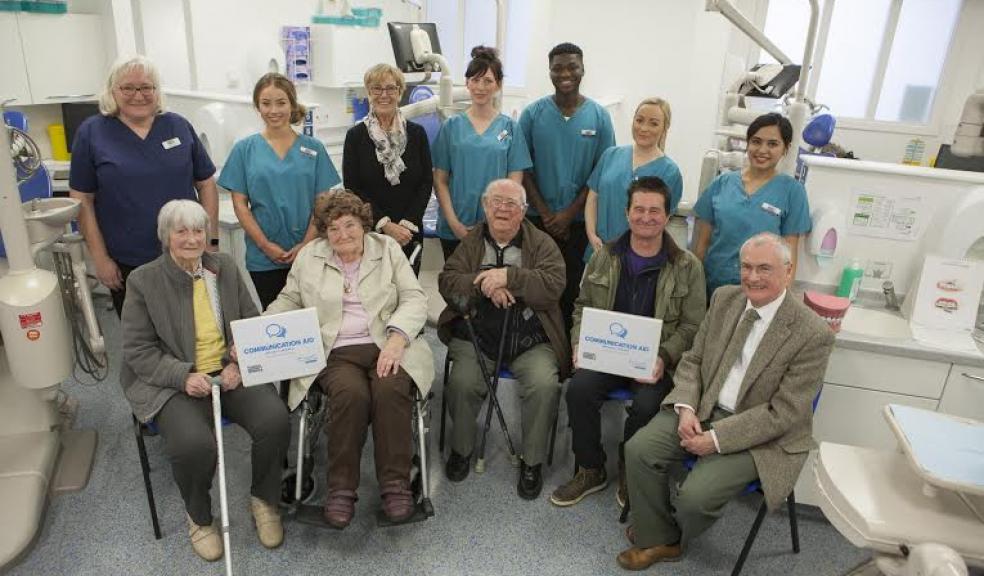
Dental project aids communication for stroke survivors
A group of second-year dental therapy and hygiene students from Plymouth University are working with the Stroke Association in Plymouth and Chatterbox, to develop a communication aid to help stroke survivors when they visit the dentist.
People who have suffered a stroke can be prone to oral health problems. Loss of dexterity and feeling may mean that they cannot clean their own teeth as effectively as before, and they may not be able to feel food remaining in the mouth after meal times. As a result they have higher incidences of oral disease such as gingivitis, periodontitis, tooth decay, halitosis and ill-fitting dentures.
With stroke often comes difficulty in communicating. Even when visiting the dentist stroke survivors can find it difficult to describe their situation – from where they may be experiencing pain to letting the dentist know how they are cleaning their teeth and what they are eating and drinking.
The dental therapy and hygiene students have worked with stroke survivors via the Stroke Association in Plymouth and Chatterbox, and come up with a communication aid which allows patients with stroke to communicate more fully with their dentist and dental hygienist.
They have put together the communication aid after visits to the Stroke Association in Plymouth, and visits from stroke survivors to Plymouth University’s Devonport Dental Education Facility – where dental students treat NHS patients under the supervision of qualified dental health professionals.
Using illustrations, emoticons and multiple choice, the communication aid allows stroke survivors to: accurately describe where they are experiencing pain, including using a series of emoticons to explain levels of pain from none to hurts the most; show when pain is at its worst, either hot, cold or when eating; explain the type of pain, sharp, dull, ache or radiating; tell the dentist how long they have had the pain, if anything makes it better and whether or not they have taken painkillers.
The communication aid also helps patients to describe their diet (including how much tea and coffee, biscuits or sugar has been drunk and eaten) and gives them advice about what makes a good diet.
In conjunction with input from a dental professional, the communication aid describes everything the patient needs to know about maintaining good oral hygiene.
Lyn Lewis is from Chatterbox in Plymouth, an organisation that supports stroke survivors. She said: “Not only has this project helped our service users to make the most of their visits to the dentist, but by being involved with the process it has helped their confidence. Working with the dental therapy and hygiene students has been a super experience for all concerned, not least because something has come out of it which is really useful and which could be used nationwide. There are benefits not just for survivors of stroke, but also for others with health problems that make it difficult to communicate.”
The project was led by Dr. Cathy Coelho, Clinical Lecturer at Plymouth University Peninsula Schools of Medicine and Dentistry and herself a practising dentist. She said: “Working with the Stroke Association and Chatterbox we found that there was a definite need to develop something which would help stroke survivors get a better experience from their visits to the dentist. While those with stroke do suffer from poorer oral health, with improved communication and support those problems can be addressed. We are immensely proud of the solution the students have come up with and it would be great if it could be adopted elsewhere.”













